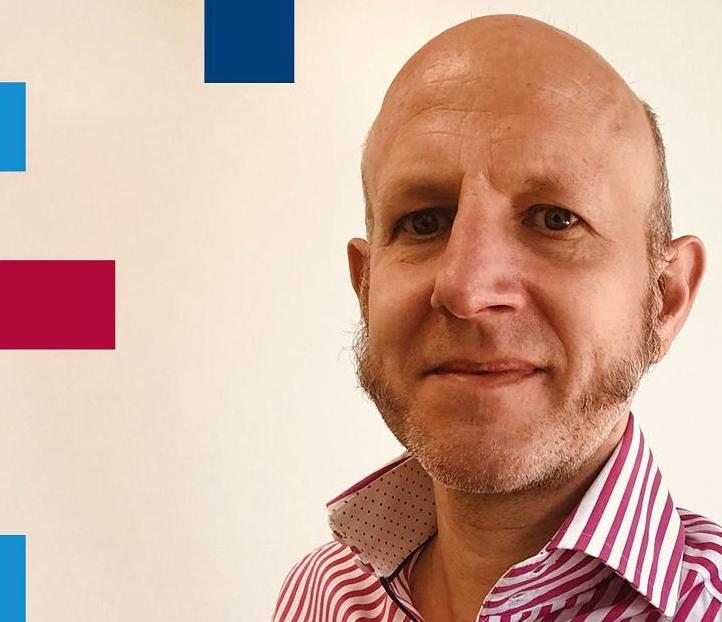
How do you get a Turkish engineer working in Qatar to his next job in Kazakhstan within three weeks? If you wouldn’t even be sure where to start, you’re not alone. But there’s one person who would have the travel booked, the correct forms completed and the pre-departure medical checks done quicker than most: Alan Clarke, Orion’s operations manager and head of our global mobility function.
Alan started his career with Orion Group 16 years ago as a recruiter in our London office. Over time, he noticed that Orion’s clients were increasingly looking to retain key employees across the lifecycle of multinational projects. An offshore production facility might be designed in Singapore, fabricated in Dubai and then installed in theNorth Sea, and the operator would want certain people to be there across all three stages. Each of those countries has its own tax rules, work permits, health systems, visa requirements and more, and it didn’t make sense to Alan that highly skilled recruiters were spending their time filling out forms and checking on documentation. He saw an opportunity to create a global mobility function within Orion Group that could support the London office - and others, too. With full support from Orion’s management team, the function was created in 2012.
A tailored approach
There’s no one-size-fits-all when it comes to global mobility, and it’s clear that this flexible approach has led to Orion’s success. “Every single mobilisation is different,” says Alan. “Each client has their own internal processes and requirements; they are all structured differently and have offices in different locations. And the contractors are all unique: some are more likely than others to take responsibility for their own admin, so our service is tailored to the individual.”
Alan continues: “We do start to learn certain things that help - like how best to get from A to B when there are no direct flights or the time it takes to get a work permit for a certain country, but really you’re starting from scratch every time.”The team has an ongoing relationship with candidates: once someone is deployed, they’re still on hand to help with visa renewals, medical issues or contract amendments. That there’s no typical day is precisely what Alan likes most about his job.
Robust processes are paramount
Alan admits to having more spreadsheets than he can count: a necessity when tracking multiple people through individual processes for different clients. “If a client calls me up to check on progress, I need to be able to tell them the current status immediately. There’s no room for ambiguity.” Alan’s team works with Orion colleagues from across the world on mobilisations, linking up with in-country offices and specialist departments such as tax, travel, occupational health, payroll and visas. “Prior to having these systems and processes in place, somebody could arrive in, say, Azerbaijan, ready to do a job, only to find that they hadn’t had the required medical or they didn’t have the right work permit,” explains Alan.
An ever-changing landscape
Over the decade since Orion started to specialise in global mobility, the role has been shaped by everything from geopolitical factors to internationalisation. “Certain countries go in and out of favour with contractors,” says Alan. He’s also noticed a trend among clients of moving away from a focus on Western contractors. While English remains the primary language used on projects worldwide, project operators are now much more likely to focus on the skills required and be less prescriptive about where the person has previously worked. As a result, Alan’s job is not always about mobilising UK nationals. One day he might be getting a Syrian engineer to Uzbekistan, and the next, a Romanian project manager to Singapore.This adds a layer of complexity to his team’s job, though Orion’s global network of offices is helpful as this allows him to easily work with in-country specialists.
Covid, of course, also had a huge impact. At first Alan’s team was working on getting everyone home against a landscape of grounded planes and closed borders. Next came a period of working with contractors on contract changes and homeworking. Then, as things started to open up, the global mobility team had to navigate an ever-changing set of rules around Covid testing and country entry requirements. Alan says that international travel is still not back to where it was, and there’s now a reliance on charter flights that wasn’t there before.
A job done well
Alan gets satisfaction from lining everything up so that no issues arise for either his clients or his candidates. “We’re doing our job well when nobody thinks about it,” Alan explains. “We’re there in the background, making sure everything happens as and when it should.” What’s clear is while the global mobility team might be happiest working away in the background, they’re at the forefront of Orion’s success in placing people across the world.
Integrated throughout Orion’s network of local offices and head office support functions, Orion’s worldwide mobility services provide a fully coordinated service through pre-mobilisation, in-country arrival and ongoing assignment support. To find out more, visit our website:

